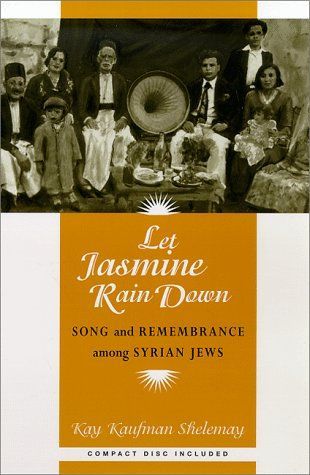
Let Jasmine Rain Down Song and Remembrance Among Syrian Jews
When Jews left Aleppo, Syria, in the early twentieth century and established communities abroad, they carried with them a repertory of songs (pizmonim) with sacred Hebrew texts set to melodies borrowed from the popular Middle Eastern Arab musical tradition. Let Jasmine Rain Down tells the story of the pizmonim as they have continued to be composed, performed, and transformed through the present day; it is thus an innovative ethnography of an important Judeo-Arabic musical tradition and a probing contribution to studies of the link between collective memory and popular culture. Shelemay views the intersection of music, individual remembrances, and collective memory through the pizmonim. Reconstructing a century of pizmon history in America based on research in New York, Mexico, and Israel, she explains how verbal and musical memories are embedded in individual songs and how these songs perform both what has been remembered and what otherwise would have been forgotten. In confronting issues of identity and meaning in a postmodern world, Shelemay moves ethnomusicology into the domain of memory studies.